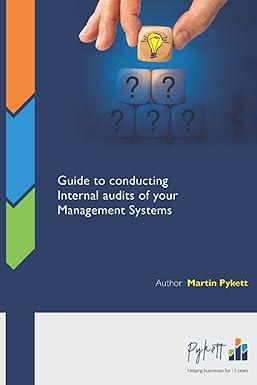Question
Case: Tesla: Merging With Solar City and A Winning Formula for Deal Synergies 2. On page 3, the case notes that In February 2016, Tesla
Case: "Tesla: Merging With Solar City" and "A Winning Formula for Deal Synergies"
2. On page 3, the case notes that In February 2016, Tesla announced its financial results for 2015, including a net loss of $889 million on revenues of $3.7 billion. The company reported cash reserves of $1.2 billion. Using the Exhibits given in the case, determine where these cash reserves predominately came from. 3. Examine Exhibit 5. Why are the the free cash flow numbers higher in the Liquidity Management case than they are in the Unrestricted Liquidity case? Given this, why is Lazards valuation lower in the Liquidity Management case than in the Unrestricted Liquidity case? 4. Compare the approach used by Lazards in calculating the discounted cash flow valuation of SolarCity versus the approach they utilized in their discounted cash flow valuation of Tesla? Do you believe the difference in approach was justified? Briefly explain. 5. Compare the perpetuity growth rates used by Evercore to value SolarCity to the perpetuity growth rates utilized by Lazards. What do you think explains the difference? In general, what considerations should an analyst consider when selecting a perpetuity growth rate? 6. On page 8, the case notes that, The analysis also incorporated the estimated present value Teslas net operating losses of $769 million, using a discount rate of 12.5%. What exactly do you think this means and why do you think it matters? Is it odd that it is not mentioned for SolarCity as well? 7. Perform some research online about how well Tesla Energy (i.e the new name of SolarCity) has performed since the merger? Given all of the evidence you can find, do you think the Tesla-SolarCity merger was a good one? Do you think any of the proposed synergies came to fruition?
1.What are the proposed synergies of the SolarCity deal according to Teslas management? Given the discussion in the McKinsey piece, do you think this deal has the potential for material synergies? Explain why or why not. On page 3, the case notes that In February 2016, Tesla announced its financial results for 2015, including a net loss of $889 million on revenues of $3.7 billion. The company reported cash reserves of $1.2 billion. Using the Exhibits given in the case, determine where these cash reserves predominately came from. Examine Exhibit 5. Why are the the free cash flow numbers higher in the Liquidity Management case than they are in the Unrestricted Liquidity case? Given this, why is Lazards valuation lower in the Liquidity Management case than in the Unrestricted Liquidity case? Compare the approach used by Lazards in calculating the discounted cash flow valuation of SolarCity versus the approach they utilized in their discounted cash flow valuation of Tesla? Do you believe the difference in approach was justified? Briefly explain. Compare the perpetuity growth rates used by Evercore to value SolarCity to the perpetuity growth rates utilized by Lazards. What do you think explains the difference? In general, what considerations should an analyst consider when selecting a perpetuity growth rate? On page 8, the case notes that, The analysis also incorporated the estimated present value Teslas net operating losses of $769 million, using a discount rate of 12.5%. What exactly do you think this means and why do you think it matters? Is it odd that it is not mentioned for SolarCity as well? Perform some research online about how well Tesla Energy (i.e the new name of SolarCity) has performed since the merger? Given all of the evidence you can find, do you think the Tesla-SolarCity merger was a good one? Do you think any of the proposed synergies came to fruition?
Step by Step Solution
There are 3 Steps involved in it
Step: 1

Get Instant Access to Expert-Tailored Solutions
See step-by-step solutions with expert insights and AI powered tools for academic success
Step: 2

Step: 3

Ace Your Homework with AI
Get the answers you need in no time with our AI-driven, step-by-step assistance
Get Started


